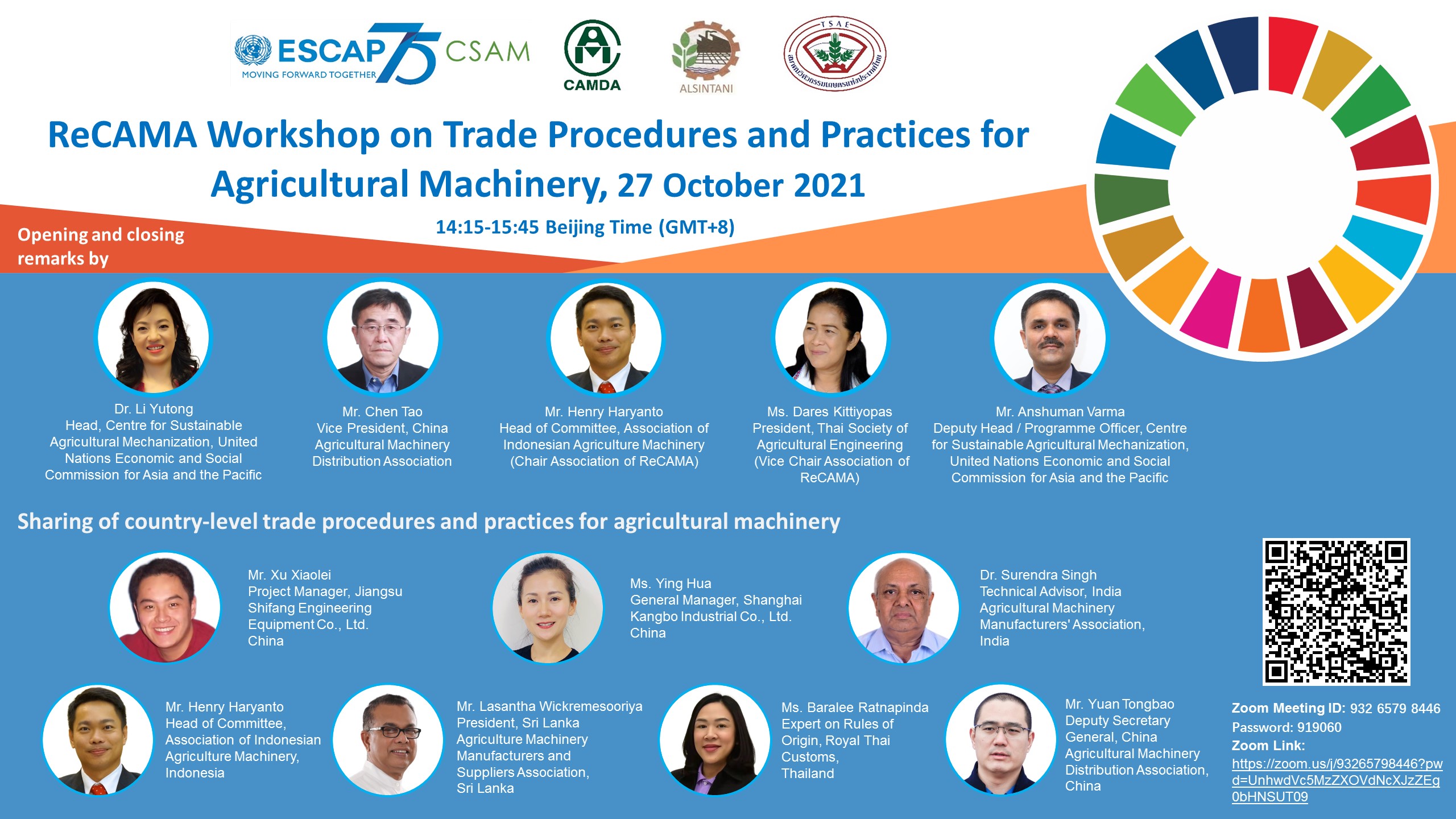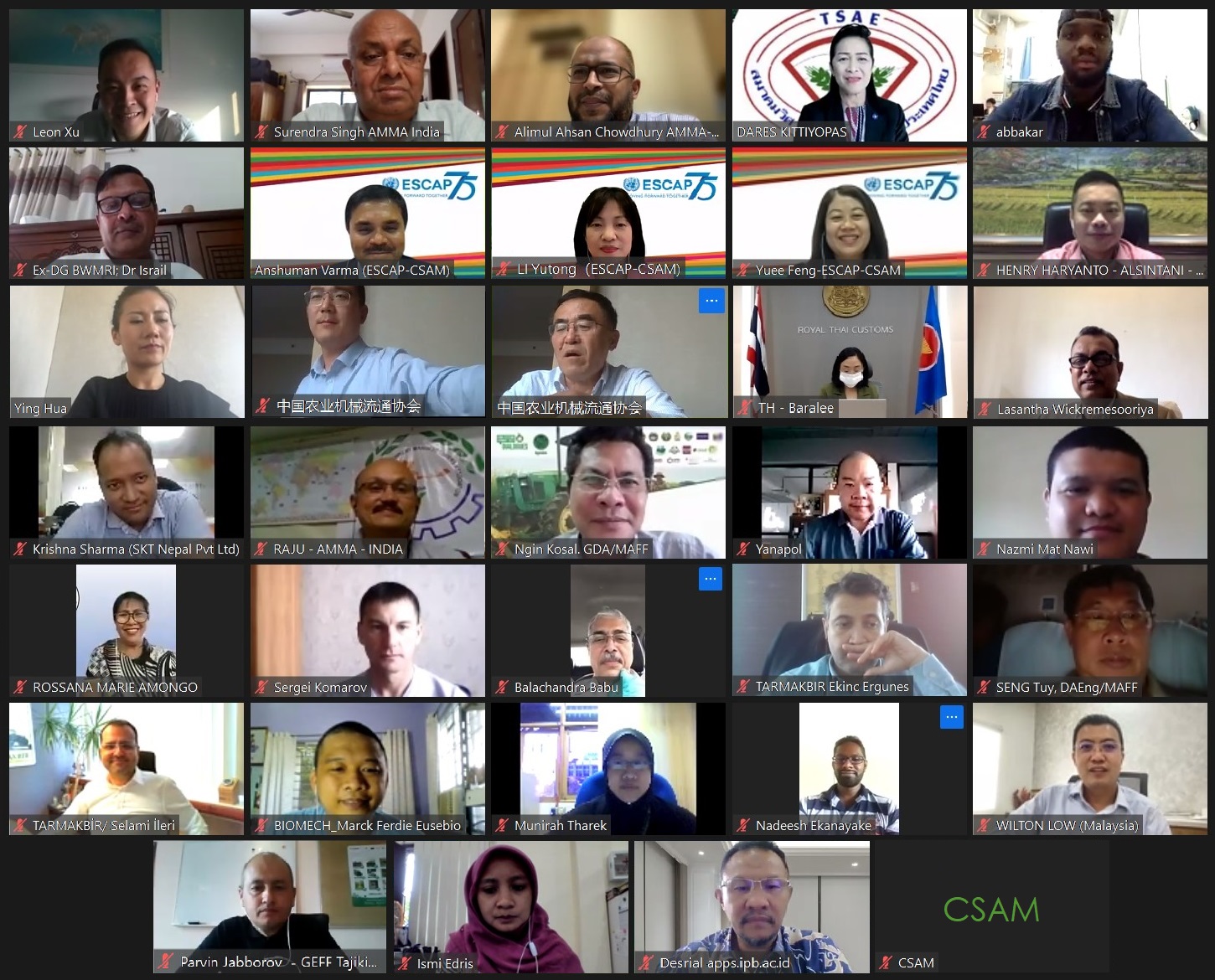CSAM Boosts Efforts to Promote Agricultural Machinery Trade in Context of COVID-19 Pandemic

Meeting Documents
On 27 Oct 2021, the Centre for Sustainable Agricultural Mechanization (CSAM) of the United Nations Economic and Social Commission for Asia and the Pacific (ESCAP) co-organized the virtual ‘ReCAMA Workshop on Trade Procedures and Practices for Agricultural Machinery’ in collaboration with the China Agricultural Machinery Distribution Association (CAMDA), Association of Indonesian Agriculture Machinery and the Thai Society of Agricultural Engineering. The event was attended by more than 100 online participants from more than 30 countries from the Asia-Pacific region and beyond.
The Workshop increased the awareness of stakeholders about key procedures and practices relating to trade of agricultural machinery in the Asia-Pacific region and discussed specific cases from China, India, Indonesia, Sri Lanka and Thailand. Information gaps relating to import and export procedures of agricultural machinery were identified and ways to address the gaps were explored. In addition, the participants were also exposed to a range of new agricultural machinery and equipment via a ‘Digital Show’ by CAMDA.
The theme of the workshop was especially relevant in view of the delays and disruptions in imports and exports due to the COVID-19 pandemic which has also affected the agricultural machinery sector. The bulk of the countries in the Asia-Pacific region are importers of agricultural machinery which makes them vulnerable to such disruptions.
The Regional Council of Agricultural Machinery Associations in Asia and the Pacific (ReCAMA) is a network established by CSAM in 2014 in response to the need of member States to enhance public-private partnership and promote regional trade so as to nurture a healthy and sustainable agricultural machinery sector in the region. So far, ReCAMA has 21 member associations from 15 countries in the region. Today’s workshop reiterated ReCAMA’s ongoing efforts in facilitating the exchange of knowledge and information and enhancing collaboration and closer business connections among the members and with all stakeholders with shared interests.

